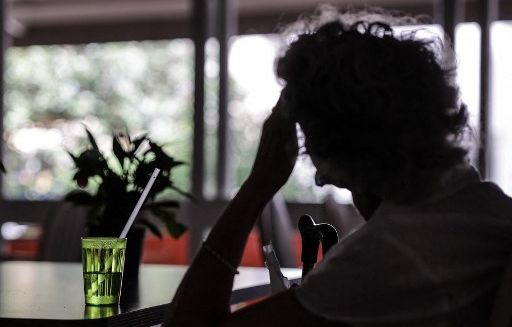The bill aimed at raising the legal retirement age reawakens old anti-foreigner refrains, while a new day of strike took place on February 7, 2023. On Facebook, a viral post asserts a little quickly that a “foreigner who has never contributed receives 960 euros in solidarity allowance for the elderly” (Aspa), when the French should contribute until they are 64 years old.
FAKE OFF
Except that this allowance, open to people over the age of 65, or even a little earlier in the event of disability, is granted under conditions of residence and low resources (by combining old-age and disability pensions, professional income, income assets and movable and immovable income). And these conditions are stricter for foreigners: in particular, you must reside in France on a stable basis and have continuously held a residence permit authorizing you to work for at least ten years. For a dozen nationalities, depending on commitments with the countries of origin, the conditions are the same as for people of French nationality, under certain conditions.
This type of message shows “a profound ignorance of the way this service works”, points out Isabelle Sénécal, head of the advocacy department of the Little Brothers of the Poor, contacted by 20 minutes. First of all, this allowance is differential, ie it comes in addition to an income. The majority of its beneficiaries have worked and contributed, but not enough to have a decent pension. Benefits are financed by national solidarity, via the Old Age Solidarity Fund and the Special Disability Fund and are mainly paid by pension funds
Single women, main beneficiaries
The Aspa is, with the Supplementary Old Age Allowance (ASV), one of the two allowances which makes it possible to reach the minimum old age, explains the Department of Research, Studies, Evaluation and Statistics (Drees) in her panorama 2022 Pensioners and pensions. If a person in a couple, for example, can receive Aspa, the maximum amount they can receive will be 961.08 euros per month, if the couple’s income does not exceed 1,492.08 € per month, according to the scale fixed on July 1, 2022.
Single women make up half of the recipients of minimum old-age allowances (ASV or Aspa). “This overrepresentation of women is explained by a greater longevity and by the weakness of their own pension rights acquired by generations of women who have little or no participation in the labor market”, with short and incomplete careers, notes the Drees in a sheet on the profile of recipients of the minimum old age.
A high rate of non-use
According to DREES data, at the end of 2020, 460,690 people received Aspa from one of the pension funds (general scheme, special schemes, liberal professions, etc.), of which 45,190 are beneficiaries of the so-called Saspa scheme (solidarity allowance service for people elderly). These Saspa beneficiaries have in fact never contributed. Since 2020, the Mutualité sociale agricole (MSA) has been managing Saspa’s requests for these elderly people with life paths “marked by fragility, in particular long-term absence from the labor market, a situation of disability, weak resources,” says the MSA.
According to data from 2016, 17% of ASV or Aspa recipients have no specific right to retirement and have therefore not contributed. Again, it is overwhelmingly women (75%), underlines the Drees. “Fortunately, this system which limits the precariousness of the elderly, and especially very old women, exists”, defends Isabelle Sénécal, who also underlines the high rate of non-use of the minimum old age due to ignorance of her rights and non-recovery on succession.
Aid of 337 euros on average
In synthesis on the subject in May 2022, the DREES estimated that 50% of single people eligible for the minimum old age do not use it (i.e. more than 300,000 people), based on data from 2016. It has also been estimated that if they made the request, these non-claimants would receive an average of 205 euros per month, while appellants receive an average of 337 euros per month.
There is also support for the family and social life of former migrants. It is intended for foreigners aged over 65 with low resources and who would like to stay in their country of origin for more than six months to be closer to their family. But it is in little demand: in 2020, less than 40 people benefited from this aid, according to DREES.

